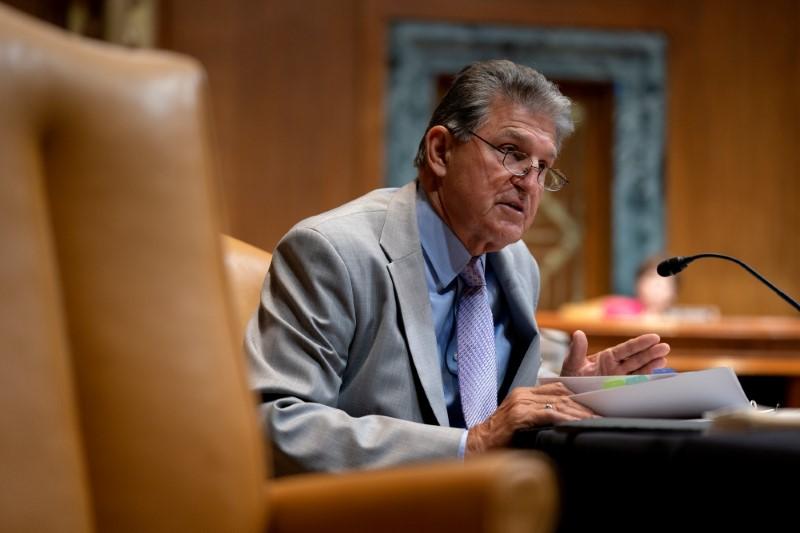Sen. Joe Manchin (D-W.Va.) said on June 16 that he’s not sure if he supports ramming another legislative package through Congress after some in his party have tried securing a commitment from him on a sweeping infrastructure package in exchange for their support for a smaller, bipartisan proposal that he helped craft.
“If they don’t like it, they should vote against it,” Manchin, a Democrat, told reporters on Capitol Hill. “That should not be conditional. It should be based on the merits of what the bill is.”





